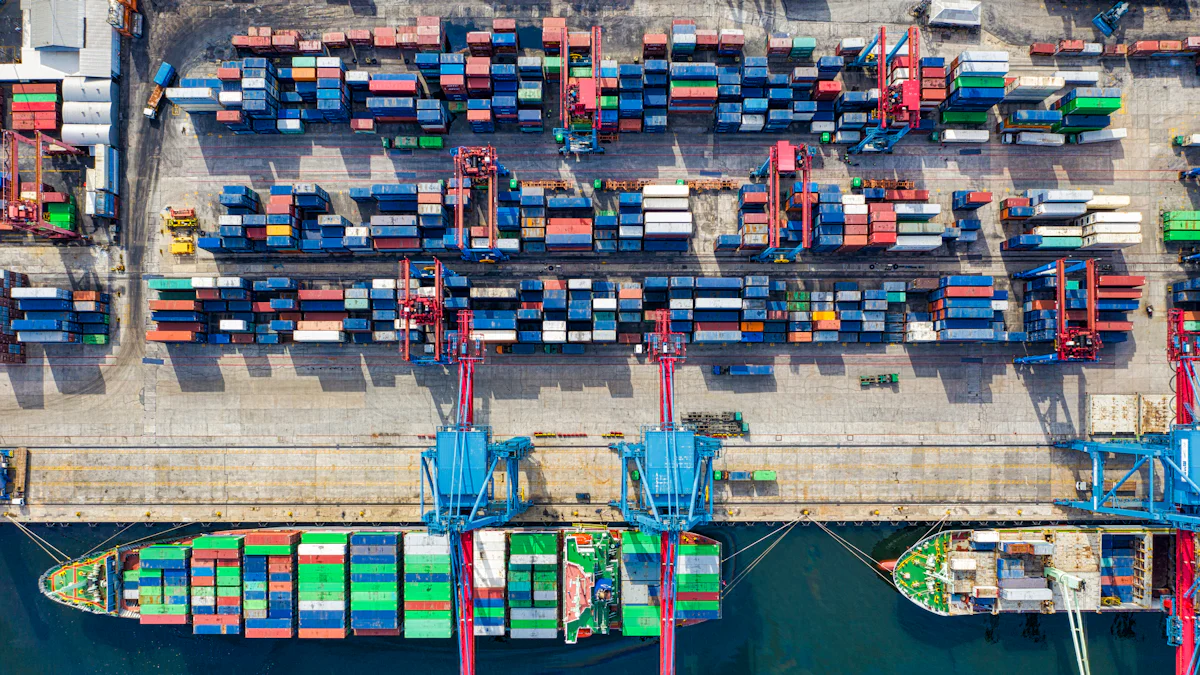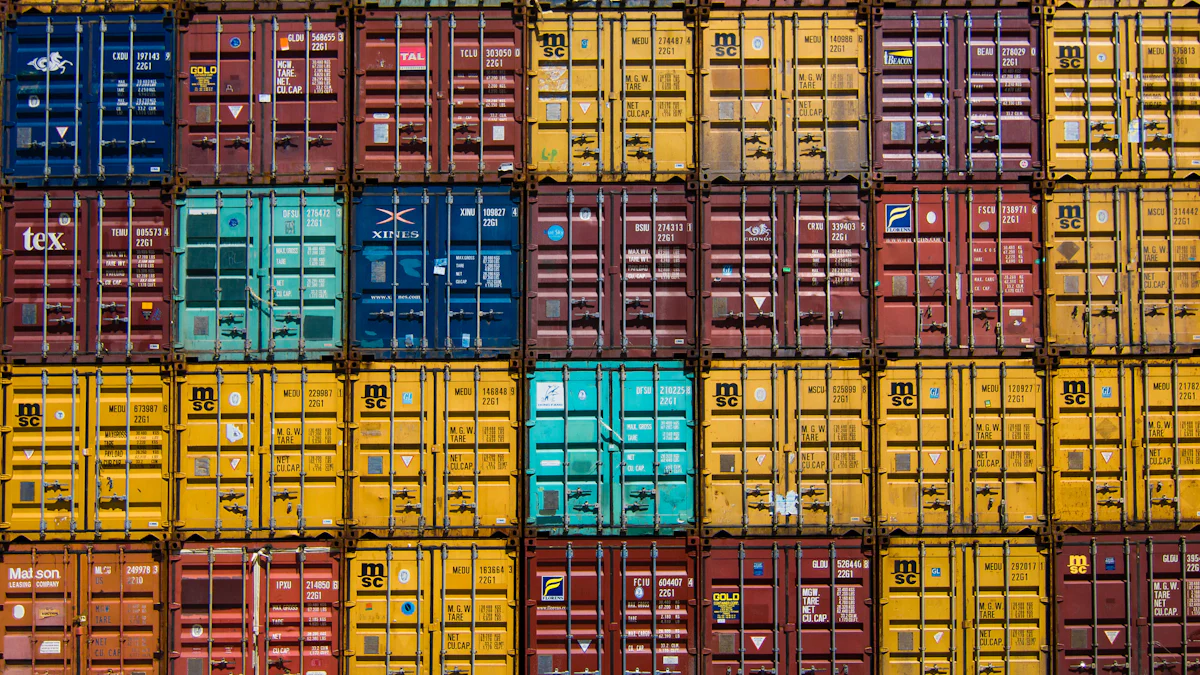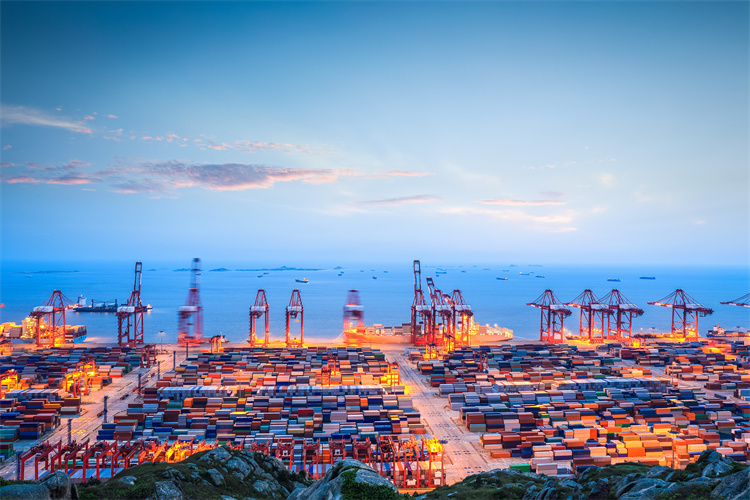Logistics Industry Insights Revealed in Latest Reports

The logistics industry plays a crucial role in the global economy. Efficient transportation and distribution systems ensure goods reach consumers promptly. Staying updated with the latest reports is essential for businesses to adapt to changing market dynamics. Recent predictions indicate a slowdown in global transportation and logistics output growth to 3.8% in 2024. This deceleration results from factors like the subdued US economic performance and China's slowdown. Understanding these trends helps companies make informed decisions and maintain competitiveness in a rapidly evolving market.
Overview of the Global Logistics Market

Key Statistics
Market Size and Growth Projections
The global logistics market has shown remarkable growth over recent years. In 2023, the market size reached an impressive valuation of nearly $10.59 trillion. Analysts project this figure to soar to approximately $21.91 trillion by 2033. This growth trajectory highlights the increasing demand for efficient logistics services worldwide. The transportation and logistics industry experienced a growth rate of 6.4% in 2022. However, this rate slowed to 5.2% in 2023 and is expected to decelerate further to 3.8% in 2024. Various economic factors contribute to this slowdown.
Regional Market Analysis
Different regions exhibit varying growth patterns within the logistics sector. The Asia Pacific region stands out with its rapid expansion. The thriving e-commerce industry and the burgeoning manufacturing sectors drive this growth. These developments boost the need for efficient and adaptable supply chain solutions. The region's dynamic market conditions create opportunities for logistics companies to innovate and expand their services.
Economic Impact
Contribution to Global Economy
The logistics industry plays a pivotal role in the global economy. Efficient logistics systems ensure that goods move smoothly across borders. This movement supports international trade and economic development. The logistics sector contributes significantly to the GDP of many countries. The industry's growth directly influences economic stability and prosperity.
Employment and Job Creation
The logistics industry serves as a major source of employment worldwide. Millions of people work in various roles within the sector. These roles range from transportation and warehousing to supply chain management. The industry's expansion creates new job opportunities and supports economic growth. As the logistics market continues to grow, the demand for skilled professionals will increase. This demand underscores the importance of training and education in the logistics field.
Specific Insights from Latest Reports
Emerging Trends
E-commerce and Last-Mile Delivery
The logistics industry has seen a surge in e-commerce activities. Online shopping has become a norm for consumers worldwide. The demand for efficient last-mile delivery services has increased significantly. Companies have invested in technologies to enhance delivery speed and accuracy. Innovations such as drones and autonomous vehicles are gaining traction. These advancements aim to meet consumer expectations for faster deliveries.
Sustainability and Green Logistics
Sustainability has become a focal point in the logistics industry. Companies are adopting green logistics practices to reduce environmental impact. Efforts include using electric vehicles and optimizing delivery routes. Renewable energy sources power warehouses and distribution centers. These initiatives contribute to reducing carbon footprints. The logistics industry plays a crucial role in promoting sustainability.
Technological Advancements
Automation and AI
Automation and AI have revolutionized the logistics industry. These technologies offer increased visibility into supply chains. Automated systems streamline operations and reduce human error. AI-driven analytics provide insights for better decision-making. Companies can predict demand and optimize inventory levels. The logistics industry benefits from improved efficiency and cost savings.
Blockchain and IoT
Blockchain technology enhances transparency in the logistics industry. Secure and immutable records track shipments from origin to destination. This technology reduces fraud and ensures data integrity. IoT devices monitor real-time conditions of goods during transit. Sensors provide data on temperature, humidity, and location. The logistics industry leverages these technologies for enhanced security and efficiency.
Challenges Faced by the Logistics Industry
Supply Chain Disruptions
Supply chain disruptions pose significant challenges for the logistics industry. Economic slowdowns in major markets affect global transportation. The US and China have experienced reduced output growth. These factors impact the flow of goods across borders. Companies must develop strategies to mitigate these disruptions. Flexibility and adaptability are key to overcoming these challenges.
Regulatory Changes
Regulatory changes influence the logistics industry significantly. Governments implement new policies to address environmental concerns. Compliance with these regulations requires adjustments in operations. Companies must stay informed about evolving legal requirements. The logistics industry must navigate these changes to remain competitive. Proactive measures ensure compliance and avoid potential penalties.
JUSDA's Role and Contributions in the Logistics Industry
Competitive Advantages
Innovative Solutions
JUSDA excels in providing innovative solutions within the logistics industry. The company integrates advanced technologies like big data, IoT, and cloud platforms. These technologies enhance supply chain efficiency. JUSDA's JusLink platform offers real-time collaborative capabilities. This platform supports precise business decision-making. JUSDA's approach ensures seamless operations from raw material procurement to end consumer delivery.
Strategic Partnerships
Strategic partnerships play a crucial role in JUSDA's success. Collaborations with key industry players strengthen JUSDA's market position. The joint venture with Sharp's logistics division exemplifies this strategy. Established in 2016, Sharp Jusda Logistics (SJL) embodies Foxconn's business philosophy. This partnership aims to satisfy all customer needs. Such alliances enhance JUSDA's service offerings and expand its global reach.
Recognitions and Achievements
Industry Awards
JUSDA has received numerous industry awards for its contributions to the logistics industry. Recognition as a unicorn enterprise highlights JUSDA's innovative capabilities. The company consistently appears on the Chinese logistics service industry unicorn enterprise list. The Hurun Global Unicorn List also features JUSDA from 2019 to 2024. In 2023, the Harvard Business Review (Chinese version) honored JUSDA with the "Dingge Award Annual Industrial Platform Enterprise."
Customer Testimonials
Customer testimonials reflect JUSDA's commitment to excellence. Clients praise JUSDA's efficient and reliable logistics solutions. The company's ability to meet complex customer demands stands out. JUSDA's diverse service offerings cater to over 1,000 well-known brand customers. These testimonials underscore JUSDA's reputation as a trusted logistics partner.
Diverse Service Offerings
End-to-End Supply Chain Solutions
JUSDA provides comprehensive end-to-end supply chain solutions. The logistics industry benefits from JUSDA's seamless integration of services. These solutions cover raw material procurement, manufacturing, and distribution. JUSDA ensures efficient resource utilization through its intelligent supply chain systems. The company's global presence includes 155 service points worldwide.
Customized Logistics Services
Customized logistics services form a core part of JUSDA's offerings. The company tailors solutions to meet specific customer needs. Services include multimodal transportation, warehousing, and e-commerce distribution. JUSDA's JusTrade platform streamlines international trade procedures. The JUSDA SR platform empowers cross-border new retail supply chains. These services enhance efficiency and reliability in the logistics industry.

JUSDA Solutions
To provide you with professional solutions and quotations.
The logistics industry continues to evolve with emerging trends and technological advancements. Staying informed about these developments proves crucial for businesses. Understanding the latest insights helps companies adapt and thrive in a competitive market. Engaging with the logistics community offers valuable opportunities for collaboration and growth. Participating in industry events and discussions fosters knowledge sharing. Businesses can leverage these interactions to enhance their strategies and operations. The logistics sector remains a vital component of the global economy. Embracing innovation and sustainability ensures long-term success.
See Also
Unraveling the Effects: Trends in Logistics Risk
Best 5 Logistics Courses for 2024
Unlocking Logistics Efficiency: Secrets for Cost Savings
Exploring the Possibilities: AI in Logistics Revealed
The Definitive Manual on International Logistics Firms Exposed
